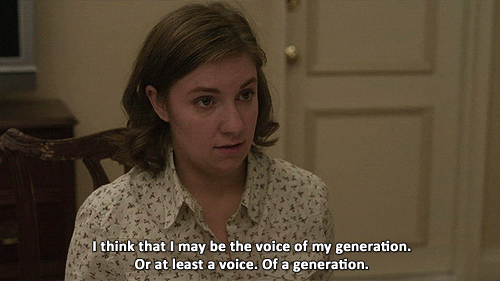
I went to a conference for running speciality retailers last week. I learned a lot and have all kinds of deep thoughts from it that might end up on this blog later; but for now, I want to discuss something that came up over and over again: millennials.
First, let’s get on the same page about who millennials are.
According to Wikipedia (am I showing my age already?!), “Researchers and popular media use the early 1980s as starting birth years and the mid-1990s to early 2000s as ending birth years.” The most widely-accepted birth years for millennials are 1981 to 1996.
So, we’re talking about (roughly) 23 to 38 year-olds right now.
Some interesting facts about US millennials include:
- They are less white and more ethnically diverse than generations before them. (Brookings)
- Millennials have attained higher levels of education compared to older generations. (Brookings)
- Neither older millennials (1981-1988) nor younger ones (1989-1996) identify strongly with their generational label. (The older ones tend to identify more with Gen X.) (Pew)
- Millennials are most likely to attribute negative traits (like self-absorbed, wasteful, greedy, and cynical) to themselves than other living generations. (Pew)
Okay, enough data. Back to the conference.
Since the conference was primarily for brick-and-mortar retailers, the elusive and important millennial customer demographic came up often. Real-life retailers are competing with online retailers that make at-home purchases at any hour of the day possible, millennials are looking for experiences more than things, and so on. (This is a larger discussion about brick-and-mortar retailers and not specific to running specialty, but anyway.) There was also talk about millennials in sessions I attended and conversations I had about managing a team and employee retention.
Here’s what struck me most:
In every conversation, every session, every slide that mentioned millennials, there was a certain “otherness” about the group. And not just “other” but also less-than.
But I am millennial (along with almost everyone under 40 in attendance at the conference, by the way). And it’s hard to hear.
I’ve experienced this before, in conversations with people–usually white men–who think they’re talking to a white woman, and say something disparaging about Latinos.
I often refer to myself as an “undercover Latino” because while my Latino dad has dark skin, I look more like my very white mom. It’s amazing what some people will say when they think you’re just like them.
As an older millennial, I probably could keep my mouth shut and “pass” as a Gen Xer (with great skin) and join in on the millennial-bashing. But I just don’t see the point. We can’t control when we’re born any more than we can control our ethnicity.
Sure, there are probably characteristics that are true about the vast majority of a generation due to external circumstances (like a comfort with technology), but assigning traits to a group of people can be very damaging business. So I have to ask: Are millennials self-reporting negative traits because they’re true or because we won’t stop telling them that millennials are those things?
And also, how do we get them to spend their money on something other than avocado toast?! (Just kidding!)




